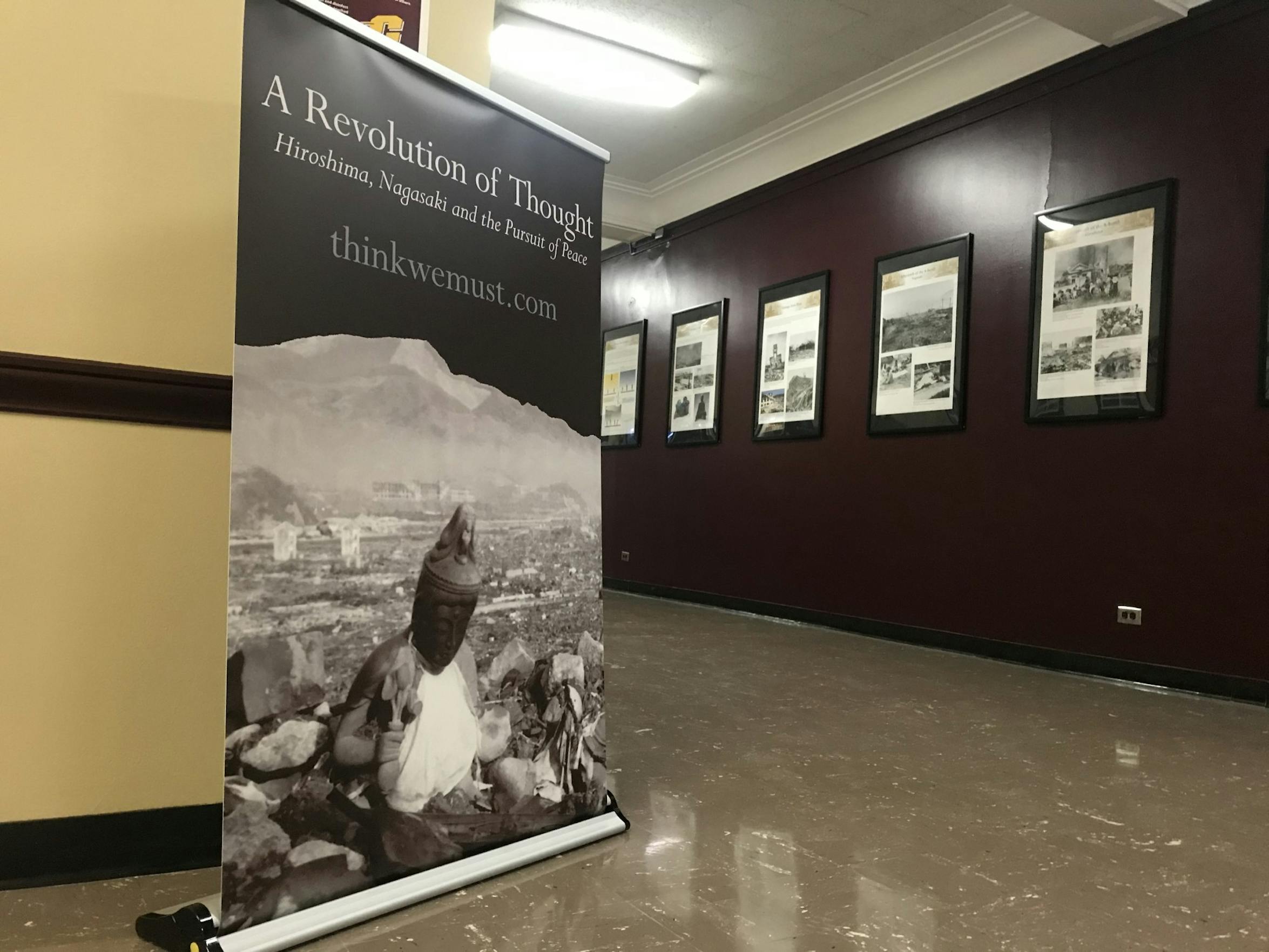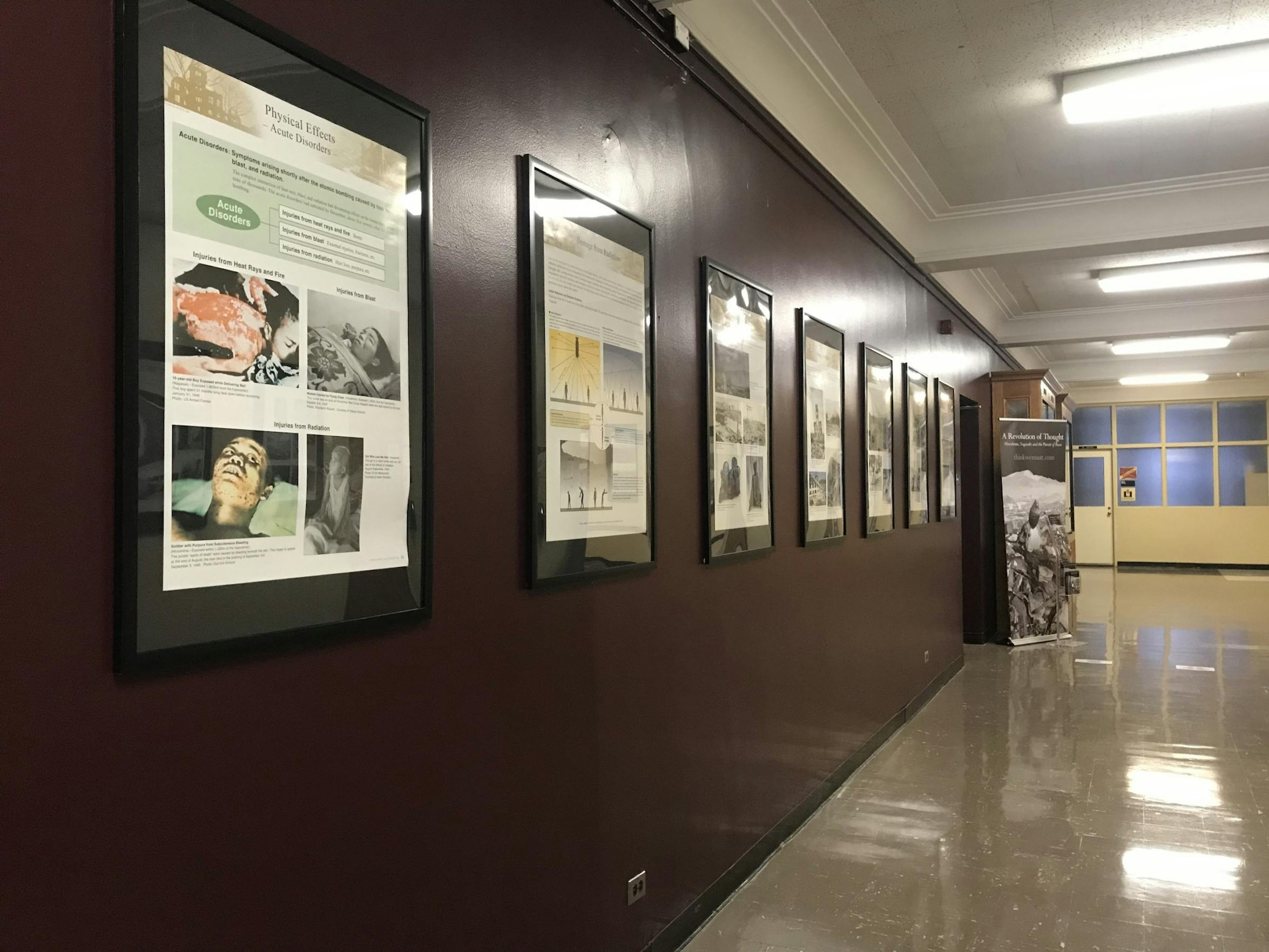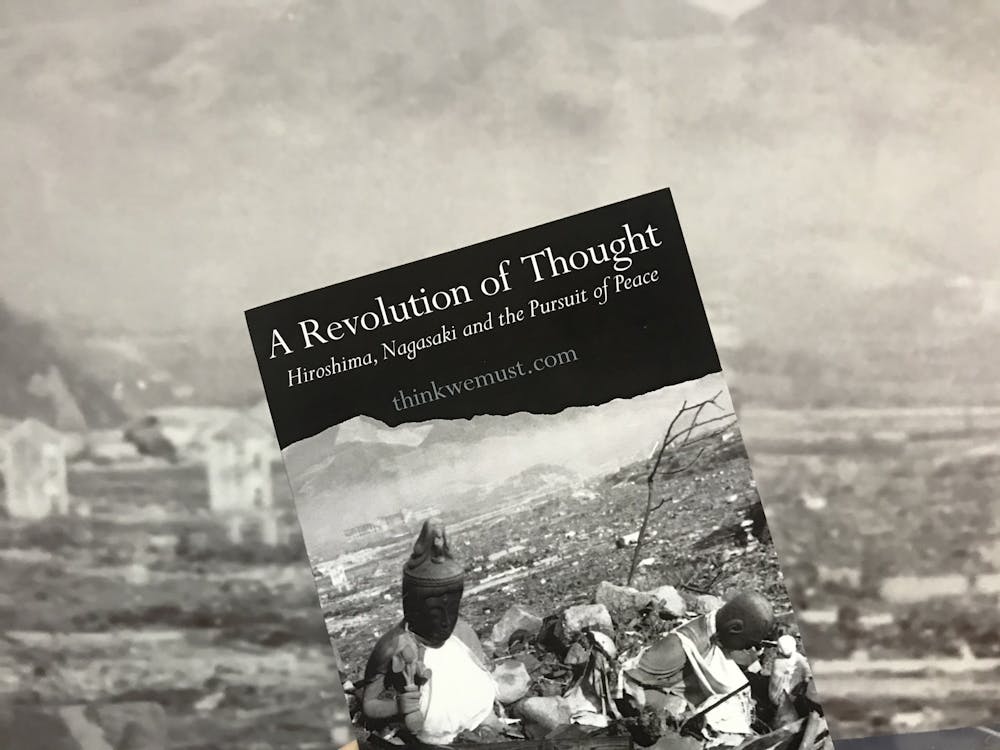'A Revolution of Thought' exhibit explores history and ethics of nuclear weapons
Trenton sophomore Michael Buzzy first learned of the bombings of Hiroshima and Nagasaki in the fourth grade.
The story went: the U.S. dropped the first atomic bomb on the city of Hiroshima and three days later, on Nagasaki in 1945. The bombings resulted in Japan’s surrender and the allies’ victory in World War II.
"(Throughout my early high school years) I was totally inundated with the argument that, 'this had to happen, we had to bomb them to end the war ... as horrible as it was, (the bombings) had to occur,'" Buzzy said.
It wasn’t until philosophy faculty Hope May’s class on moral problems did Buzzy truly understand how devastating these events were.
"My whole viewpoint has totally changed to transcend this nationalistic discourse to one of empathy (and global citizenship)," he said. "We all share this planet together, and (nuclear) weapons do no good by being used. It's just damaging your fellow citizen."
Now Buzzy, alongside other Honors students, and May are presenting "A Revolution of Thought" poster exhibit in Powers Hall, with support from the Central Michigan University Center for International Ethics.

"A Revolution of Thought" poster exhibit in Powers Hall
In addition to showing the destructive power of nuclear weapons, May said the exhibit is meant to serve as a basic introduction to international law and peace.
“(After the exhibit) you don't have to go and join an NGO or anything (unless you want to)," May said. "But I think it's a sort of obligation that we have as citizens of the universe to understand how these weapons work."
The exhibit coincides with the 75th anniversary of the use of nuclear weapons in Hiroshima and Nagasaki, and the ratification of the Treaty on the Prohibition of Nuclear Weapons (TPNW), which will go into effect on Jan. 22 and formally ban nuclear weapons.
Although the treaty was not signed by any states with nuclear weapons, May said it's changing the discourse on disarmament as a valid international law.
"Now you're going to have the countries who didn't sign it, (forced to) explain why they didn't," May said.
Buzzy said he hopes attendees will walk away from the exhibit feeling empathy and the "overview effect" - or what astronauts experience looking down at the planet from space.
"(From space) you just see the world and humanity as this delicate, precious thing that should be cherished and nourished for everyone..." he said. "When you see (the planet) from space, there are no lines on a map that divide people."
More information on the exhibit can be found on the "Think We Must" website.
The exhibit's posters were originally donated to CMU by the Hiroshima Peace Culture Foundation.

"A Revolution of Thought" poster exhibit in Powers Hall







